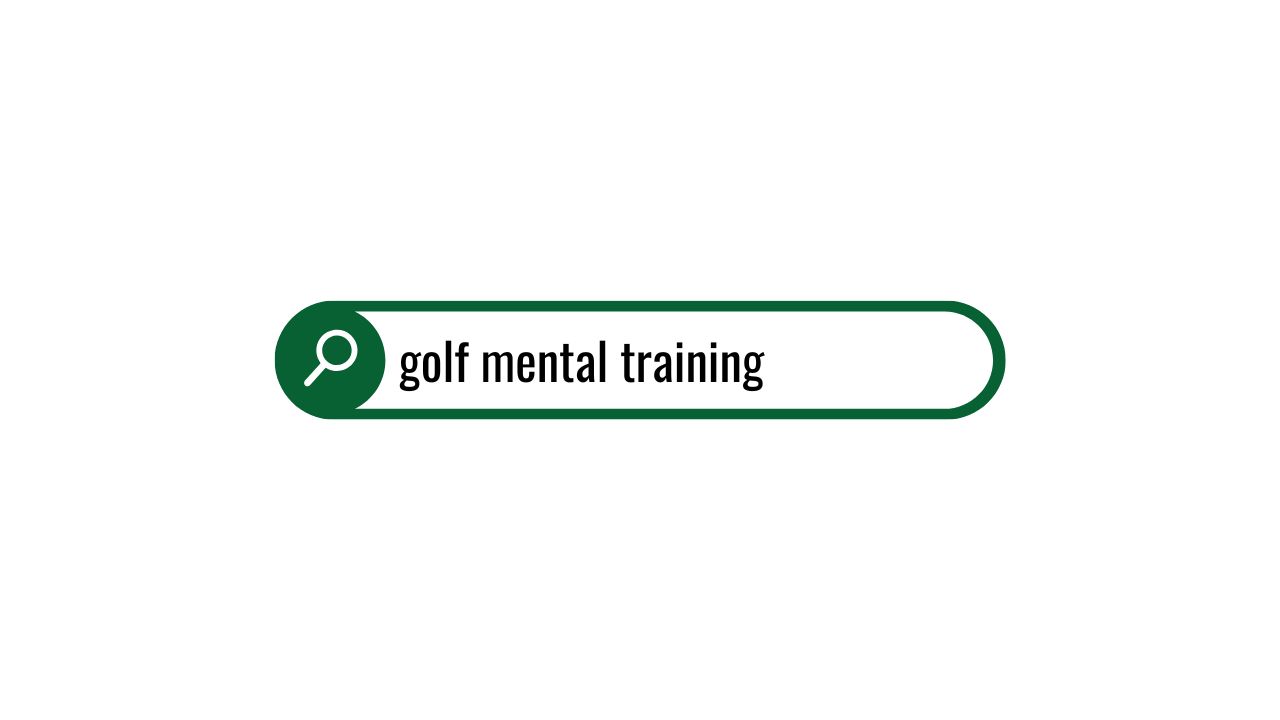Are You Sabotaging Your Golf Game Without Knowing?

We all pay lip service to the power of the mind in golf, but how often do we value golf mental training alongside physical practice? If you took an honest inventory—if you counted the hours spent honing your golf mentality versus your physical game—would the numbers reflect the value you claim your mindset actually holds?
Here’s the paradox: most of us are comfortable sweating through physical practice, yet find ourselves stalled or aimless when it comes to golf mental training. We know, in theory, that mental strength is decisive. But knowing that something matters and knowing how to build it are different universes.
Training isn’t an abstract concept. It’s a verb—an action. You wouldn’t expect to get stronger in the gym without a plan; the same principle holds for your mind. If you haven’t invested in learning how to train your mind to truly lower your scores, you’re not just missing out—you’re quietly sabotaging your own performance, again and again.
So ask yourself: are you actively training your mental game, or just hoping your experience will carry you when the pressure mounts? Until you prioritize true mental training, any physical gains will always hit a ceiling.
What Is Golf Mental Training?

Mental golf is about more than just "thinking positive." It involves developing specific mental skills and strategies that help you stay focused, manage pressure, and make smart decisions during a round of golf. After 33 PGA tour victories, from my clients, I know a solid pre-shot routine will hit the shot for you.
It encompasses course management, self-talk, and the ability to let go of mistakes and concentrate on the next shot. When you understand, you will have to train to develop these skills. Golf mental training becomes part of your routine, and that's the game changer.
The Importance of Mental Toughness

Mental toughness is essential to a golf mindset. It is about having the resilience to bounce back from shots, manage frustration, and maintain confidence even when things aren't going your way on the golf course.
Golfers with mental resilience can handle pressure, sustain focus, and perform consistently, regardless of the circumstances. Mental fortitude is trained like a muscle, and much like a trained muscle, your routines will be there for you to take the weight so you can fulfill your potential on the course.
Key Elements of Golf Psychology
Golf psychology incorporates several key elements that contribute to mental performance. Specifically, this involves focusing on:
- Developing a solid pre-shot routine
- Using effective self-talk
- Practicing mental rehearsal
- Mastering course management
Mental fitness is about training your mind to stay focused, manage emotions, and make smart decisions. Mental golf instructors can help golfers develop these cognitive skills, allowing them to improve their game and perform consistently well.
Identifying Self-Sabotage in Your Golf Game
![]()
Recognizing Negative Thought Patterns
One of the initial steps in mastering the mental game is to recognize negative thought patterns that may be sabotaging your golf game. Golfers often engage in negative self-dialogue without realizing its detrimental effects.
This can manifest as criticizing your golf swing after a 'bad shot' or doubting your ability to execute a difficult shot. Recognizing these patterns is the first step toward changing them. Knowing "A great routine will hit the shot for you," it’s important to internalize that and not let negative thoughts hinder your performance on the golf course, or even to play golf at all.
The Role of the Subconscious Mind
The subconscious mind plays a significant role in your performance on the course. The subconscious mind can harbor deeply ingrained beliefs and fears that affect your decision-making and execution. If you have a subconscious fear of hitting into the water, for example, this can cause tension and lead to a poor golf swing.
As a golf psychologist, I address these subconscious blocks, moving you towards your full potential. Mental exercises, such as visualization and positive affirmations, can help reprogram your subconscious mind and improve your game, allowing you to fully develop your mental abilities.
Common Mental Traps for Golfers
Several common mental traps can hinder a golfer’s performance. These include perfectionism, fear of failure, and dwelling on past mistakes during a round of golf. See 3 Proven Strategies to Bounce Back After a Bad Round of Golf.
Perfectionism can lead to excessive pressure and anxiety, causing tension in your golf swing. Fear of failure can make you play defensively, preventing you from taking necessary risks to improve your game.
Addressing the mental side of these issues is crucial to playing your best golf. Learning to accept imperfections and focus on the next shot are key components of mental toughness. The mental game is just as important as the physical game, so work on developing your mental skills alongside physical skills for overall improvement.
Strategies for Improving Your Mental Game
Golf Mental Training Techniques That Work
Now that you value golf psychology, it's essential to incorporate effective mental golf training techniques into your routine. One such technique is visualization, where you mentally rehearse successful shots before stepping onto the course. See How to Talk Through Your Long Game Example with Emmett.
Golfers can also utilize positive self-talk to enhance their confidence and maintain their focus, thereby reinforcing their capabilities and minimizing negative thoughts. Mental rehearsal involves visualizing each shot and can help improve your game by reinforcing positive outcomes. Regular practice and consistency are key to mastering these mental skills and seeing real results on the golf course.
I’ve talked through self-talk most recently in Beyond the Fairway: Mindset Lessons from the Travelers Championship
Regularly train your mental capacity by working one-on-one with a coach or in a program.
Utilizing Mental Golf Books and Resources
Golfers seeking to enhance their mental game can benefit from the wealth of knowledge available in mental golf books and resources. You can purchase my book, The Winning Way in Golf and Life and download my accompanying free study guide.
Your commitment to improving your mindset should be active. Otherwise, you're limiting your progress to knowing the information but not applying it. If you only read workout resources and never go to the gym, you will never achieve the desired results.
These resources offer insights into effective mental strategies and golf psychology techniques used by top golfers and sports psychologists. They often include exercises and drills to develop mental toughness, course management skills, and positive self-dialogue habits.
Remember, training is a verb, and a mental training program can offer personalized guidance and support to help you integrate these concepts into your pre-shot and overall golf training regime.
Playing Your Best Golf: Tips for Success

How to Build a Consistent Golf Mental Training Routine
To consistently play your best golf, building mental fitness is crucial. "A great routine will hit the shot for you." This involves more than just hitting balls at the driving range. It’s about training your mind to handle the pressures and challenges that arise during a round of golf. Effective strategies include practicing mindfulness to stay focused on the present moment, developing positive self-talk habits to build confidence, and learning visualization techniques to rehearse successful shots mentally.
You can watch real-life examples on my YouTube channel, as I work through exercises with my students. A strong mental game can help golfers maintain composure and make smart decisions, leading to consistent and improved performance on the golf course.
Developing a Consistent Mental Game
Developing a consistent mental game is key to achieving long-term success as a golfer. This requires establishing a routine that helps you stay focused and confident before each shot.
Regular mental rehearsal and mental training can help internalize these mental strategies, making them second nature, which allows golfers to maintain composure and improve their scores, regardless of the circumstances.
If you want your mind to stop sabotaging your performance, be consistent with your mental preparation. Whether you choose to work with a coach one-to-one or in an online training system like The Score Better Video Program, prioritize your golf mental training to change your game.


